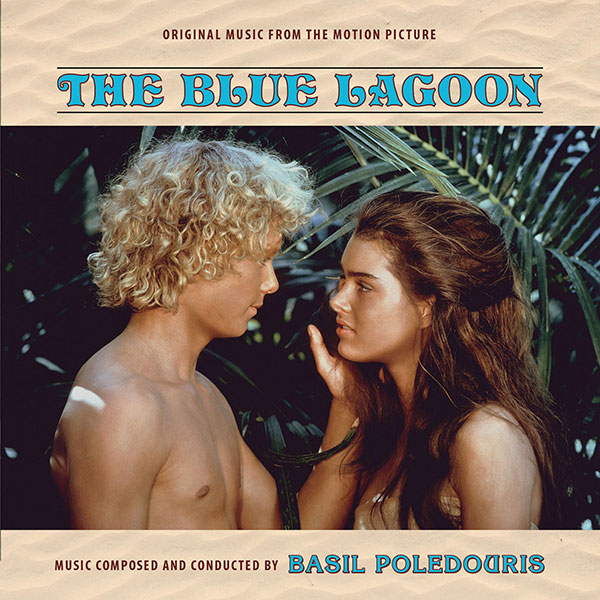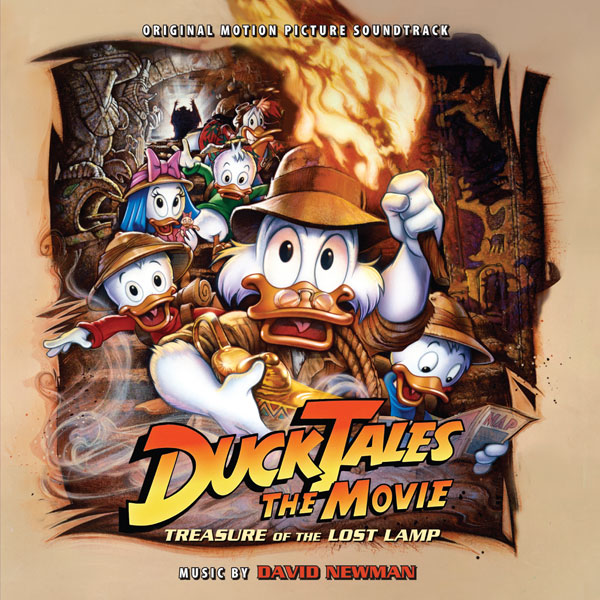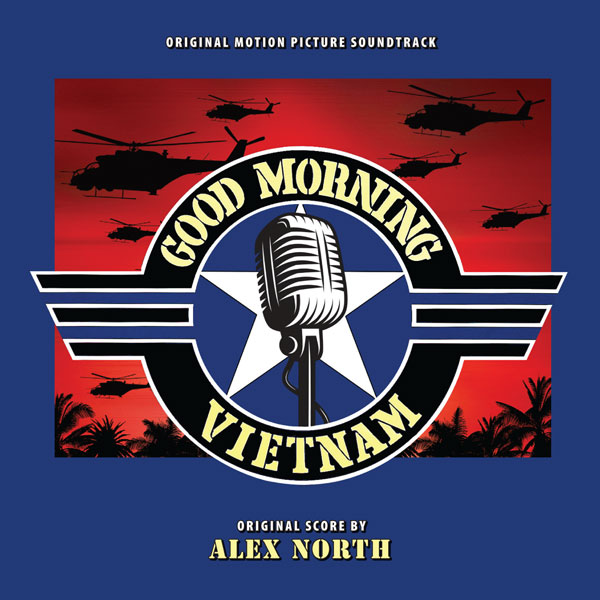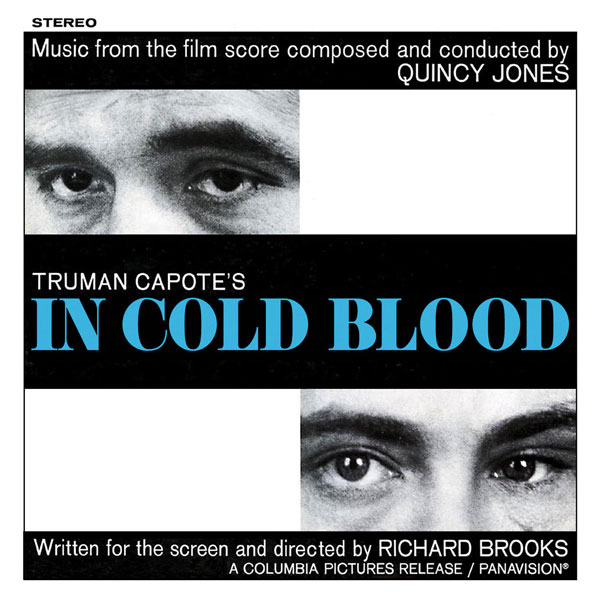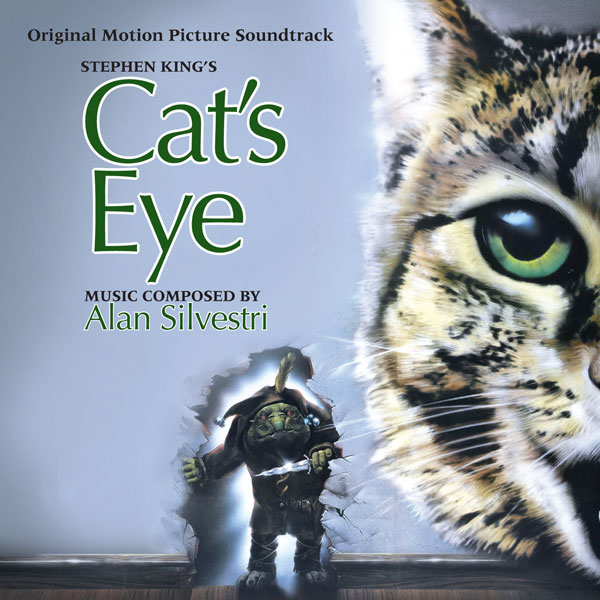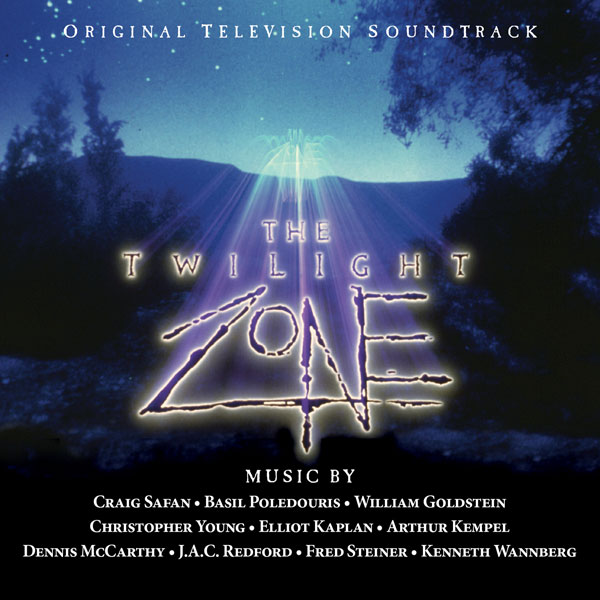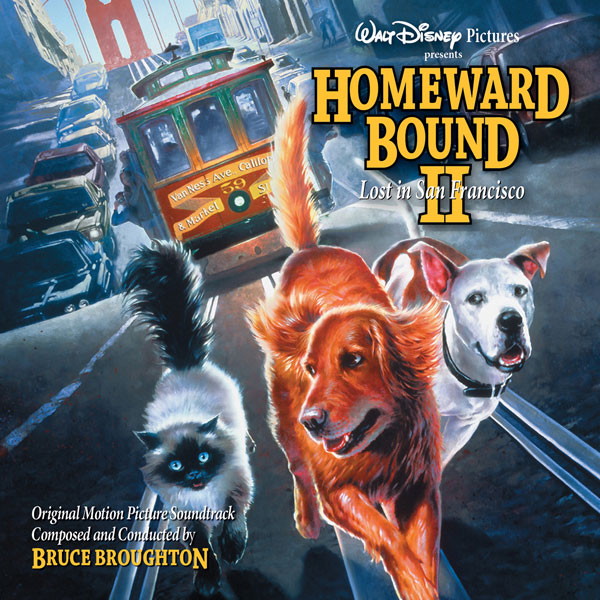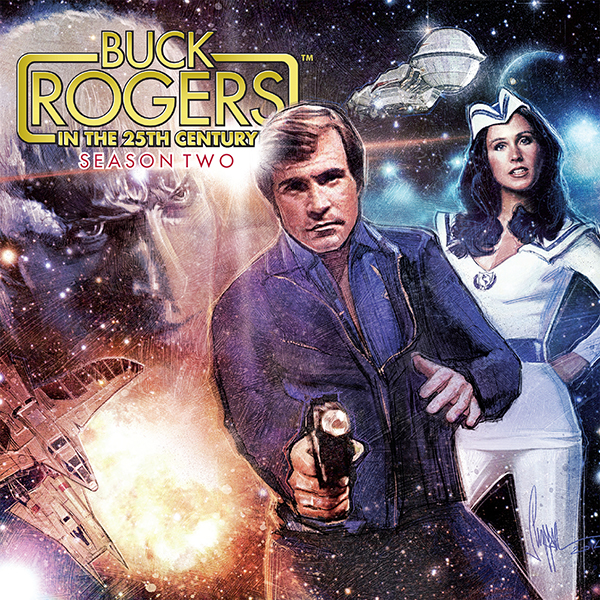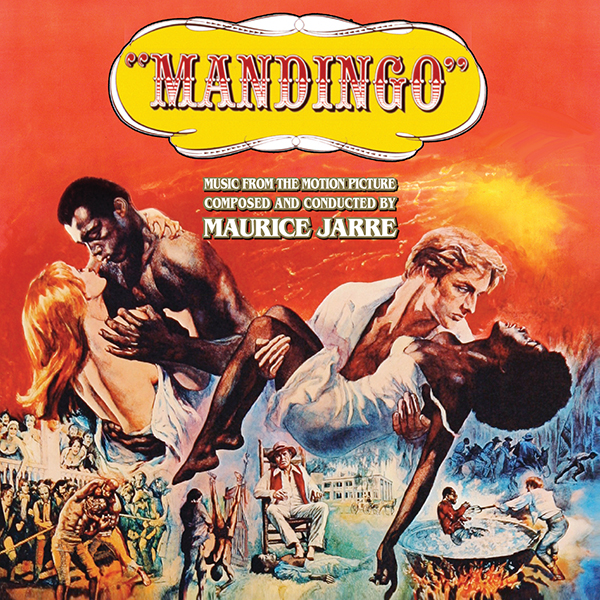I've once again been remiss in keeping up the blog for 2019, but here's a quick post to close out the year! La-La Land Records recently announced Nevada Smith: The Paramount Westerns Collection as one of their Black Friday 2019 titles. I co-produced this collection and co-wrote the liner notes with Frank K. DeWald. This 4-CD set features 11 scores from 11 composers spanning two decades of Paramount western cinema: Nevada Smith (Alfred Newman), El Dorado (Nelson Riddle), Three Violent People (Walter Scharf), Kid Rodelo (Johnny Douglas), Walk Like a Dragon (Paul Dunlap), Will Penny (David Raksin), The Hangman (Harry Sukman), Branded (Roy Webb), The Furies (Franz Waxman), Copper Canyon (Daniele Amfitheatrof) and Streets of Laredo (Victor Young). The miraculous restoration work and mastering is by Chris Malone, and the gorgeous artwork is by Dan Goldwasser. I'm immensely proud of this collection, and hope fans of film music (especially Golden Age fans) will enjoy it as much as I've enjoyed working on it these past two years. I hope to have more to say about this release (and its individual scores) later ... but for now, special thanks to LLL's MV Gerhard and Matt Verboys, Lukas Kendall and the others who helped make it possible! Sound clips available at the LLL product page, where you can pick this up today.
Tuesday, December 31, 2019
Nevada Smith: The Paramount Westerns Collection
I've once again been remiss in keeping up the blog for 2019, but here's a quick post to close out the year! La-La Land Records recently announced Nevada Smith: The Paramount Westerns Collection as one of their Black Friday 2019 titles. I co-produced this collection and co-wrote the liner notes with Frank K. DeWald. This 4-CD set features 11 scores from 11 composers spanning two decades of Paramount western cinema: Nevada Smith (Alfred Newman), El Dorado (Nelson Riddle), Three Violent People (Walter Scharf), Kid Rodelo (Johnny Douglas), Walk Like a Dragon (Paul Dunlap), Will Penny (David Raksin), The Hangman (Harry Sukman), Branded (Roy Webb), The Furies (Franz Waxman), Copper Canyon (Daniele Amfitheatrof) and Streets of Laredo (Victor Young). The miraculous restoration work and mastering is by Chris Malone, and the gorgeous artwork is by Dan Goldwasser. I'm immensely proud of this collection, and hope fans of film music (especially Golden Age fans) will enjoy it as much as I've enjoyed working on it these past two years. I hope to have more to say about this release (and its individual scores) later ... but for now, special thanks to LLL's MV Gerhard and Matt Verboys, Lukas Kendall and the others who helped make it possible! Sound clips available at the LLL product page, where you can pick this up today.
Friday, December 14, 2018
Catching up with Intrada (Part 4)
Since some time has gone by since my most recent update (too much time, as usual!) a few more Intrada albums have seen release, so I figured I'd whip up a quick post! First up is the world premiere release of Another Stakeout by Arthur B. Rubinstein. This was a somewhat bittersweet project to work on. The music itself is a joy, alternating between rich drama, crackling action, and lighthearted comedic material to reflect the eccentricities of the film on which it is based. Rubinstein had a much larger ensemble to work with on this sequel than he did the original Stakeout, and it really shows! It's just a really fun listening experience. So that's the "sweet." As for the "bitter," readers may know that maestro Rubinstein passed away during the production of this album. He was a rare talent and I'm sorry I never got to converse with him. But it was very moving to see the respect paid by Intrada on this release, the last album he was personally involved with. I was honored to be a part of it.
The advent of winter saw two more Intrada releases I was proud to work on. The first is a double-feature of relatively obscure TV-movies scored by the great Georges Delerue: Sin of Innocence, a drama about the taboo love between teenage step-siblings, and Love Thy Neighbor, a seriocomic film about jilted neighbors who find solace in each other's arms—both perfect fodder for Delerue, who was second to none when it came to tales of complicated romance. The second is Hider in the House, a little-seen thriller starring Gary Busey, Mimi Rogers and Michael McKean about a crazed stalker (Busey, naturally) who ensconces himself in the attic of a family home. The score is by Christopher Young, and fans of his distinctive horror/thriller sound, which marries disturbing soundscapes with surprisingly lush emotion, will be well pleased. This is a reissue of the original 1990 album, long out of print, with new packaging and notes.
The advent of winter saw two more Intrada releases I was proud to work on. The first is a double-feature of relatively obscure TV-movies scored by the great Georges Delerue: Sin of Innocence, a drama about the taboo love between teenage step-siblings, and Love Thy Neighbor, a seriocomic film about jilted neighbors who find solace in each other's arms—both perfect fodder for Delerue, who was second to none when it came to tales of complicated romance. The second is Hider in the House, a little-seen thriller starring Gary Busey, Mimi Rogers and Michael McKean about a crazed stalker (Busey, naturally) who ensconces himself in the attic of a family home. The score is by Christopher Young, and fans of his distinctive horror/thriller sound, which marries disturbing soundscapes with surprisingly lush emotion, will be well pleased. This is a reissue of the original 1990 album, long out of print, with new packaging and notes.
Monday, January 1, 2018
Catching up with Intrada (Part 3)
I'm ringing in the new year with the third part of my "Catching up with Intrada" spotlight! After providing notes for the first film in the series, I was delighted to be asked to do notes for The Monkey King 2. It's another exquisite fantasy score from Christopher Young, and the first album I've done for a theatrically released film still in its initial run. The sequel is less action-packed than the original, but I personally found it more dramatically rich. After that came a pair of scores by a man I much admired, the late Basil Poledouris. The Blue Lagoon and Return to the Blue Lagoon were written at very different points in his career, the former being one of his earliest major scores and the latter being written after he was well-established in the industry. Both, however, are stunning works of symphonic beauty.
Next came some scores by David Newman, one of the hardest-working conductors in the business and a fine composer who knows how to marshal the resources provided by a large symphony orchestra. First up was his score to DuckTales: The Movie—Treasure of the Lost Lamp. I have very fond memories of this film from my childhood, and the music is as grand and adventurous as one could hope for. The second score was Operation Dumbo Drop, a family adventure score that I missed the first time around but was very happy to discover thanks to this release. I'd have loved it as a teenager, and it holds up incredibly well today. This soundtrack was paired on CD with an important score by Alex North: his complete score for the classic film Good Morning, Vietnam. There's not much underscore in the film, which is famous for its use of pop songs, but what's there is haunting and emotionally vivid.
These projects were followed with a pair of epics, one for the big screen and one for the small screen. James Horner's Troy is a score that I didn't get a true impression of the first time I heard it, which was in hacked-up form to accompany the director's cut DVD. For this project, I sought out the theatrical cut and was intrigued to discover that, contrary to many critics who found the director's cut a huge improvement, I much preferred the abbreviated cut with Horner's score intact. (For completists who pick up this album, don't toss your original CD, as it contains a few minutes of material that had to be left off this new edition.) The small-screen epic was a brand new edition of Maurce Jarre's Shōgun. I had previously done notes for Intrada's straight reissue of the original LP. This release, however, was a monumental 3-CD presentation of the full score, an album reconstruction and copious extras. I was honored to produce this CD for Intrada with Lukas Kendall, in addition to penning all-new notes.
Finally, my most recent release for Intrada was a double-feature of music by the legendary Quincy Jones. Mackenna's Gold is a western, and a very fine one, with bracing themes and a memorable ballad performed by José Feliciano. In Cold Blood is an incredible jazz fever dream of a score for the 1967 film based on Truman Capote's famous memoir. These are two of Jones' finest scores, and it was an absolute delight to get to write about them.
Thanks for revisiting these projects with me! Still to come: retrospectives for Quartet, La-La Land and a post about my first piece commissioned specially for an LP release.
Next came some scores by David Newman, one of the hardest-working conductors in the business and a fine composer who knows how to marshal the resources provided by a large symphony orchestra. First up was his score to DuckTales: The Movie—Treasure of the Lost Lamp. I have very fond memories of this film from my childhood, and the music is as grand and adventurous as one could hope for. The second score was Operation Dumbo Drop, a family adventure score that I missed the first time around but was very happy to discover thanks to this release. I'd have loved it as a teenager, and it holds up incredibly well today. This soundtrack was paired on CD with an important score by Alex North: his complete score for the classic film Good Morning, Vietnam. There's not much underscore in the film, which is famous for its use of pop songs, but what's there is haunting and emotionally vivid.
These projects were followed with a pair of epics, one for the big screen and one for the small screen. James Horner's Troy is a score that I didn't get a true impression of the first time I heard it, which was in hacked-up form to accompany the director's cut DVD. For this project, I sought out the theatrical cut and was intrigued to discover that, contrary to many critics who found the director's cut a huge improvement, I much preferred the abbreviated cut with Horner's score intact. (For completists who pick up this album, don't toss your original CD, as it contains a few minutes of material that had to be left off this new edition.) The small-screen epic was a brand new edition of Maurce Jarre's Shōgun. I had previously done notes for Intrada's straight reissue of the original LP. This release, however, was a monumental 3-CD presentation of the full score, an album reconstruction and copious extras. I was honored to produce this CD for Intrada with Lukas Kendall, in addition to penning all-new notes.
Finally, my most recent release for Intrada was a double-feature of music by the legendary Quincy Jones. Mackenna's Gold is a western, and a very fine one, with bracing themes and a memorable ballad performed by José Feliciano. In Cold Blood is an incredible jazz fever dream of a score for the 1967 film based on Truman Capote's famous memoir. These are two of Jones' finest scores, and it was an absolute delight to get to write about them.
Thanks for revisiting these projects with me! Still to come: retrospectives for Quartet, La-La Land and a post about my first piece commissioned specially for an LP release.
Sunday, December 31, 2017
Catching up with Intrada (Part 2)
Picking up where I left off, we begin with an interesting bit of eighties electronica: Alan Silvestri's score for the Stephen King anthology film Cat's Eye ... a release that seems like it ought to be of special interest to fans riding the nostalgia wave of Stranger Things and It. It's also intriguing from the standpoint of coming between Romancing the Stone and Back to the Future in Silvestri's filmography; you can hear him working out some ideas that would be developed in the latter score. After this project, I worked on a CD containing two classic LPs: The Heroes of Telemark by Malcolm Arnold and Stagecoach by Jerry Goldsmith. The former is a realistic wartime thriller about a vital WWII espionage mission, and is classic Arnold. Stagecoach is perhaps the loveliest of Goldsmith's many western scores, and this is a pristine presentation of the beautiful album re-recording (the film tracks have been released separately, most recently by La-La Land Records).
Next up was The Monkey King, a modern fantasy epic from China scored by American composer Christopher Young. This is a fairly massive orchestral effort, of a type not seen too often these days, and fans of the composers work ought to be very pleased. This was followed by Unidentified Flying Oddball, a live-action Disney comedy from 1979 that was released in some markets as The Spaceman and King Arthur. The film is very loosely adapted from Mark Twain's A Connecticut Yankee in King Arthur's Court, and features a dynamic and very fun score by Ron Goodwin. I also had the pleasure of seeing an old favorite revisited with Intrada's deluxe expanded version of Laurence Rosenthal's masterpiece Clash of the Titans making its way to vinyl. A portion of my notes for the CD release were extracted and repurposed, with a few minor tweaks and fixes. Incidentally, the classic poster art by the Brothers Hildebrandt looks simply fantastic at LP scale!
After that came a magnificent 3-CD set containing scores from the eighties revival of The Twilight Zone. While the series itself never gained the notoriety of its ancestor, music supervisor Robert Drasnin gathered together a team of distinguished veterans and up-and-coming talents to provide numerous original scores. On this collection you will hear amazing work by Christopher Young, Basil Poledouris, Kenneth Wannberg, Dennis McCarthy, J.A.C. Redford, Craig Safan, Fred Steiner, Elliot Kaplan, Arthur Kempel and William Goldstein, in addition to the revamped theme song by Merl Saunders and The Grateful Dead! Very highly recommended. Finally (at least as far as this post is concerned) we have Homeward Bound II: Lost in San Francisco, another brilliant family adventure score from one of my favorite film composers, Bruce Broughton. This score stands proudly alongside his score to the original film (also released by Intrada) and surpasses it in some ways, in my opinion. It's always a treat to write about maestro Broughton's music, and this was no exception.
This concludes Part 2! The third and final round of Intrada catch-up will feature more Young and Poledouris, a heaping helping of David Newman, monumental works by Horner and Jarre, and a pair of classic scores by the great Quincy Jones. Stay tuned!
Next up was The Monkey King, a modern fantasy epic from China scored by American composer Christopher Young. This is a fairly massive orchestral effort, of a type not seen too often these days, and fans of the composers work ought to be very pleased. This was followed by Unidentified Flying Oddball, a live-action Disney comedy from 1979 that was released in some markets as The Spaceman and King Arthur. The film is very loosely adapted from Mark Twain's A Connecticut Yankee in King Arthur's Court, and features a dynamic and very fun score by Ron Goodwin. I also had the pleasure of seeing an old favorite revisited with Intrada's deluxe expanded version of Laurence Rosenthal's masterpiece Clash of the Titans making its way to vinyl. A portion of my notes for the CD release were extracted and repurposed, with a few minor tweaks and fixes. Incidentally, the classic poster art by the Brothers Hildebrandt looks simply fantastic at LP scale!
After that came a magnificent 3-CD set containing scores from the eighties revival of The Twilight Zone. While the series itself never gained the notoriety of its ancestor, music supervisor Robert Drasnin gathered together a team of distinguished veterans and up-and-coming talents to provide numerous original scores. On this collection you will hear amazing work by Christopher Young, Basil Poledouris, Kenneth Wannberg, Dennis McCarthy, J.A.C. Redford, Craig Safan, Fred Steiner, Elliot Kaplan, Arthur Kempel and William Goldstein, in addition to the revamped theme song by Merl Saunders and The Grateful Dead! Very highly recommended. Finally (at least as far as this post is concerned) we have Homeward Bound II: Lost in San Francisco, another brilliant family adventure score from one of my favorite film composers, Bruce Broughton. This score stands proudly alongside his score to the original film (also released by Intrada) and surpasses it in some ways, in my opinion. It's always a treat to write about maestro Broughton's music, and this was no exception.
This concludes Part 2! The third and final round of Intrada catch-up will feature more Young and Poledouris, a heaping helping of David Newman, monumental works by Horner and Jarre, and a pair of classic scores by the great Quincy Jones. Stay tuned!
Friday, June 10, 2016
Catching up with Intrada (Part 1)
There's quite a lot of ground to cover since my last music update, so I'll be going through the releases I've worked on by label. First up is Intrada, which has had such a prodigious output these last few years that I'll be breaking my recap into two parts! We begin with Buck Rogers in the 25th Century - Season Two, a deluxe 4-CD set of music from the classic television series. It contains scores by Stu Phillips, John Cacavas and Herbert Don Woods, but the majority of the music on this set was composed by Bruce Broughton, who joined the show during its second season and confirmed the outstanding dramatic chops that would help him become one of the most respected composers in Hollywood. The set is now sold out, but well worth hunting down!
For Intrada, I also had the opportunity to write about two scores by the late James Horner. Though I never had an opportunity to personally interview Mr. Horner, it is always a great honor and pleasure to write about his music. He described himself as a colorist first and foremost, and these two scores are masterful examples. The first, Gorky Park, is a wintry blend of eerie dissonance, powerful low brass, funky urban beats, interpolations of Tchaikovsky and a love theme for the ages. The second, A Far Off Place, is a dynamic, symphonic score that taps into the grandeur, romance and adventure of Africa. Horner was a titan in his field, and these works are just two examples of why he will be so badly missed.
Next up we have a pair of double-features. You'd be hard pressed to find a stranger double bill than Maurice Jarre's Mandingo / Plaza Suite! The former is an unconventional score for a notorious blaxploitation epic, featuring a collaboration between Jarre and blues artist Muddy Waters ("Born in this Time"). The latter is a brief, light-on-its-feet score for a Neil Simon adaptation. The combo makes for a wonderful demonstration of Jarre's amazing versatility. The other double-feature is The Return of a Man Called Horse / Inherit the Wind from maestro Laurence Rosenthal, pairing one of his most sweeping scores with one of his most intimate. Both films are character studies, albeit told on very different scales, and both allow Rosenthal to shine. He remains one of my favorite composers, and I've been blessed to work on so many of his releases over the years!
Finally, we have a trio of stand-alone releases from different composers. First is Craig Safan's The Last Starfighter, a thrilling score for one of the most-loved cult sci-fi films of the 1980s. Newly remastered and expanded, it's never sounded better than it does here. Second is Christopher Young's more recent Killing Season, a rich and meditative blend of American and Eastern European influences. Working on this release was especially interesting for the way Young reworked his material into suite form for album presentation. Third is the premiere release of Michael Kamen's whirlwind action-comedy score for Adventures in Babysitting. I've been a Kamen fan since I first saw Brazil, and it was a joy to dive into this very fun score—much of it unused in the actual film!
That's it for Part 1. Next up: Silvestri, Arnold, Goldsmith, Goodwin, more Young and Safan, and my notes hit vinyl for the first time!
For Intrada, I also had the opportunity to write about two scores by the late James Horner. Though I never had an opportunity to personally interview Mr. Horner, it is always a great honor and pleasure to write about his music. He described himself as a colorist first and foremost, and these two scores are masterful examples. The first, Gorky Park, is a wintry blend of eerie dissonance, powerful low brass, funky urban beats, interpolations of Tchaikovsky and a love theme for the ages. The second, A Far Off Place, is a dynamic, symphonic score that taps into the grandeur, romance and adventure of Africa. Horner was a titan in his field, and these works are just two examples of why he will be so badly missed.
Next up we have a pair of double-features. You'd be hard pressed to find a stranger double bill than Maurice Jarre's Mandingo / Plaza Suite! The former is an unconventional score for a notorious blaxploitation epic, featuring a collaboration between Jarre and blues artist Muddy Waters ("Born in this Time"). The latter is a brief, light-on-its-feet score for a Neil Simon adaptation. The combo makes for a wonderful demonstration of Jarre's amazing versatility. The other double-feature is The Return of a Man Called Horse / Inherit the Wind from maestro Laurence Rosenthal, pairing one of his most sweeping scores with one of his most intimate. Both films are character studies, albeit told on very different scales, and both allow Rosenthal to shine. He remains one of my favorite composers, and I've been blessed to work on so many of his releases over the years!
Finally, we have a trio of stand-alone releases from different composers. First is Craig Safan's The Last Starfighter, a thrilling score for one of the most-loved cult sci-fi films of the 1980s. Newly remastered and expanded, it's never sounded better than it does here. Second is Christopher Young's more recent Killing Season, a rich and meditative blend of American and Eastern European influences. Working on this release was especially interesting for the way Young reworked his material into suite form for album presentation. Third is the premiere release of Michael Kamen's whirlwind action-comedy score for Adventures in Babysitting. I've been a Kamen fan since I first saw Brazil, and it was a joy to dive into this very fun score—much of it unused in the actual film!
That's it for Part 1. Next up: Silvestri, Arnold, Goldsmith, Goodwin, more Young and Safan, and my notes hit vinyl for the first time!
Friday, May 13, 2016
Professor Challenger: New Worlds, Lost Places
I’ve been a long time away
from the actual blogging portion of this blog (though I do try to keep the
sidebar current with my latest work), and many very cool projects have been
released in the interim. One of these is Professor Challenger: New Worlds, Lost Places from EDGE Science Fiction and Fantasy Publishing, edited by
J. R. Campbell and Charles Prepolec (editors of the Gaslight series of Sherlock Holmes anthologies). It’s a brand-new anthology of short stories centered
on the person of George Edward Challenger, the brilliant and volatile hero of
Sir Arthur Conan Doyle’s The Lost World, The Poison Belt and other tales of
wonder and adventure from the creator of Sherlock Holmes.
My short story “The Crystal Minders” is one of ten stories to appear in this collection. It's a macabre account of Professor Challenger’s summons to a lonely estate, where a former mentor and an old rival have made a disturbing scientific breakthrough. Without delving too deeply into spoiler territory, I was inspired by the challenge of taking a more contemporary science-fiction concern and re-framing it in terms that might have been accessible to Edwardian-era readers.
I’m honored to appear in Professor Challenger: New Worlds, Lost Places alongside the very talented Wendy N. Wagner, Stephen Volk, Lawrence C. Connolly, J. R. Campbell, Simon Kurt Unsworth, Mark Morris, Guy Adams & James Goss, Josh Reynolds and Andrew J. Wilson. (The cover illustration, by the way, is by Academy Award-winning artist Dave Elsey!) Making things even more exciting, the anthology has been endorsed by the estate of Sir Arthur Conan Doyle, and has recently been nominated for an Aurora Award from the Canadian Science Fiction & Fantasy Association. It is currently available in paperback and eBook formats.
My short story “The Crystal Minders” is one of ten stories to appear in this collection. It's a macabre account of Professor Challenger’s summons to a lonely estate, where a former mentor and an old rival have made a disturbing scientific breakthrough. Without delving too deeply into spoiler territory, I was inspired by the challenge of taking a more contemporary science-fiction concern and re-framing it in terms that might have been accessible to Edwardian-era readers.
I’m honored to appear in Professor Challenger: New Worlds, Lost Places alongside the very talented Wendy N. Wagner, Stephen Volk, Lawrence C. Connolly, J. R. Campbell, Simon Kurt Unsworth, Mark Morris, Guy Adams & James Goss, Josh Reynolds and Andrew J. Wilson. (The cover illustration, by the way, is by Academy Award-winning artist Dave Elsey!) Making things even more exciting, the anthology has been endorsed by the estate of Sir Arthur Conan Doyle, and has recently been nominated for an Aurora Award from the Canadian Science Fiction & Fantasy Association. It is currently available in paperback and eBook formats.
Tuesday, July 15, 2014
A Year in Review...
It's hard to believe that almost an entire year has gone by between blog posts! Mea maxima culpa. If you've been keeping an eye on the sidebar, you've noticed that it's been a very busy twelve months for soundtrack releases! I'll go through them now on a label-by-label basis, starting with Intrada.
Last year, I was thrilled to get my first Elmer Bernstein assignment: his jazzy, powerhouse score for Edward Dmytryk's The Carpetbaggers. This release features both the magnificent LP recording and, for the first time, the original film tracks. The former has been reissued as a part of Intrada's stunning Ava Collection—but if you want the total package (as well as my liner notes) this is the place to get them! Next up, I worked on James Horner's exciting, Colombian-fueled CIA thriller Clear and Present Danger. That was followed by another project with multinational flair, Laurence Rosenthal's rich and compelling The Forgotten. It's always a special treat to work on a project with Maestro Rosenthal, one of the great composers of his generation, and too often overlooked. Also, Henry Mancini's acclaimed, haunting score for The White Dawn finally made its CD debut last year! This one has been best-known to Mancini fans as a concert suite. I hope they will agree that the full film score is a revelation—exotic and engrossing, and a prime example of Mancini's ability to transcend the "pops" label.
Moving from intense character drama in the Arctic to disco among the stars, I wrote the notes for Intrada's 3-CD set of music from the first season of Buck Rogers in the 25th Century, featuring scores by Johnny Harris, Stu Phillips, Les Baxter and Richard La Salle. Next came a double-feature from Craig Safan: his Korean-inspired score for the TV pilot Remo Williams and his noble Americana score for the TV movie Mission of the Shark, based on the true story of the U.S.S. Indianapolis. After that came two explosive scores: Alan Silvestri's engaging thriller Blown Away and Laurence Rosenthal's potent disaster-epic score for Meteor. This was followed by Bruce Broughton's superlative Young Sherlock Holmes—of one of the composer's most popular and in-demand works, in its very first commercial CD release. My essay covers the project's history and its place in the legacy of Sherlock Holmes, and is followed by Douglass Fake's terrific in-depth interview with Maestro Broughton. Finally, I wrote for two more double-features. The first was from Michael Small: his chilling, religious-themed horror score for Child's Play (not the "Chucky" movie) and his synth-laced drama Firstborn. The other pairing was a real surprise: a duo of obscure scores from the great Alex North. The shorter is a jazzy industrial score for the fifties documentary Decision for Chemistry. This is joined by the debut release of his unused score for 1972's Sounder. If you know Alex North, you know his affinity for the American South, and you will hear it here in spades. It's a wonderful treasure, unheard for far too long.
The last few years have allowed me to branch out to a few other labels. For GNP Crescendo, I co-wrote the notes (with Lukas Kendall) for the remastered edition of Star Trek: The Next Generation, Vol. 2—The Best of Both Worlds, featuring the music of Ron Jones. I'm a huge Star Trek fan and a big admirer of Jones, so this was a real pleasure. I also continued to write for Quartet Records, currently celebrating their 5th Anniversary. First up for the label was Jerry Fielding's The Gambler (not the Kenny Rogers film), a fascinating score, almost wholly based on Mahler's Symphony No. 1. Not your run-of-the-mill assignment! Next up was another very special release: the debut licensed CD of John Williams' 1968 Heidi, for which I was generously granted a co-producer credit after helping parse the surviving score tracks. (They arrived jumbled, having been originally prepared for the narrated LP program.) This was an important release and a great privilege for me, as Heidi was among Williams' first opportunities to show what he could do with a large-scale dramatic feature. It is perhaps the most characteristic work of his pre-Jaws period. Rounding out the slate for Quartet were Lee Holdridge's epic fantasy The Beastmaster, significantly expanded, and Cliff Eidelman's vivacious and lovely action-comedy-romance score for Delirious.
Last but certainly not least is La-La Land Records. Anyone who knows me knows my devotion to the life and work of Shirley Walker. She was a hero of mine, and one of the most gifted and underrated composers I can name. La-La Land is second to none when it comes to giving Shirley's work the deluxe treatment. Last year, I worked on two such releases: Willard and Turbulence. The former is perhaps Walker's finest motion-picture score; its themes burrow deep into the psychology of the characters, and the contrapuntal writing as the story evolves is nothing short of brilliant. The latter is an ingenious study in obsession, warping the familiar "Carol of the Bells" into a twisted motif of Herrmannesque proportions. Speaking of warped, I was extremely happy for the opportunity to write about another Elliot Goldenthal score: his seminal Pet Sematary. It's a haunting, disturbing and strangely poignant work. But La-La Land isn't all doom and gloom! A cornerstone of the label is superhero soundtracks, and I was fortunate to write for several over the past year—all featuring the work of some of my favorite people in this industry: "Dynamic Music Partners" Lolita Ritmanis, Michael McCuistion and Kristopher Carter. These included albums from two relatively recent animated TV series: Young Justice and Batman: The Brave and the Bold. The former highlights captivating sound design, while the latter is founded on the twin pillars of bongos and "crime jazz"—although both sets are enjoyably diverse.
The last release is the closest to my heart: an epic 4-CD set containing 20 full episode scores from Superman: The Animated Series. There's so much I could say about this release. For now, I'll simply say that I think this is some of the very best work that Lolita, Michael, Kristopher, Harvey Cohen, and, of course, Shirley Walker ever did. I spent many years wishing for a release such as this—almost as many as I did for Batman: The Animated Series—and when it finally happened, I not only got to write for it, I got to co-produce it for La-La Land with my friend and colleague Neil S. Bulk. Michael Matessino prepared the audio, Jim Titus prepared the artwork, and the result is stunning. It's another spectacular entry in the label's long and continuing line of releases from the animated DC Universe.
That's it for now! Thanks for sticking around. And very special thanks to the many composers and filmmakers who were generous enough to share their time with me as I worked on these releases. It's been a fantastic twelve months, and I think the coming months are going to be pretty amazing as well!
Last year, I was thrilled to get my first Elmer Bernstein assignment: his jazzy, powerhouse score for Edward Dmytryk's The Carpetbaggers. This release features both the magnificent LP recording and, for the first time, the original film tracks. The former has been reissued as a part of Intrada's stunning Ava Collection—but if you want the total package (as well as my liner notes) this is the place to get them! Next up, I worked on James Horner's exciting, Colombian-fueled CIA thriller Clear and Present Danger. That was followed by another project with multinational flair, Laurence Rosenthal's rich and compelling The Forgotten. It's always a special treat to work on a project with Maestro Rosenthal, one of the great composers of his generation, and too often overlooked. Also, Henry Mancini's acclaimed, haunting score for The White Dawn finally made its CD debut last year! This one has been best-known to Mancini fans as a concert suite. I hope they will agree that the full film score is a revelation—exotic and engrossing, and a prime example of Mancini's ability to transcend the "pops" label.
Moving from intense character drama in the Arctic to disco among the stars, I wrote the notes for Intrada's 3-CD set of music from the first season of Buck Rogers in the 25th Century, featuring scores by Johnny Harris, Stu Phillips, Les Baxter and Richard La Salle. Next came a double-feature from Craig Safan: his Korean-inspired score for the TV pilot Remo Williams and his noble Americana score for the TV movie Mission of the Shark, based on the true story of the U.S.S. Indianapolis. After that came two explosive scores: Alan Silvestri's engaging thriller Blown Away and Laurence Rosenthal's potent disaster-epic score for Meteor. This was followed by Bruce Broughton's superlative Young Sherlock Holmes—of one of the composer's most popular and in-demand works, in its very first commercial CD release. My essay covers the project's history and its place in the legacy of Sherlock Holmes, and is followed by Douglass Fake's terrific in-depth interview with Maestro Broughton. Finally, I wrote for two more double-features. The first was from Michael Small: his chilling, religious-themed horror score for Child's Play (not the "Chucky" movie) and his synth-laced drama Firstborn. The other pairing was a real surprise: a duo of obscure scores from the great Alex North. The shorter is a jazzy industrial score for the fifties documentary Decision for Chemistry. This is joined by the debut release of his unused score for 1972's Sounder. If you know Alex North, you know his affinity for the American South, and you will hear it here in spades. It's a wonderful treasure, unheard for far too long.
The last few years have allowed me to branch out to a few other labels. For GNP Crescendo, I co-wrote the notes (with Lukas Kendall) for the remastered edition of Star Trek: The Next Generation, Vol. 2—The Best of Both Worlds, featuring the music of Ron Jones. I'm a huge Star Trek fan and a big admirer of Jones, so this was a real pleasure. I also continued to write for Quartet Records, currently celebrating their 5th Anniversary. First up for the label was Jerry Fielding's The Gambler (not the Kenny Rogers film), a fascinating score, almost wholly based on Mahler's Symphony No. 1. Not your run-of-the-mill assignment! Next up was another very special release: the debut licensed CD of John Williams' 1968 Heidi, for which I was generously granted a co-producer credit after helping parse the surviving score tracks. (They arrived jumbled, having been originally prepared for the narrated LP program.) This was an important release and a great privilege for me, as Heidi was among Williams' first opportunities to show what he could do with a large-scale dramatic feature. It is perhaps the most characteristic work of his pre-Jaws period. Rounding out the slate for Quartet were Lee Holdridge's epic fantasy The Beastmaster, significantly expanded, and Cliff Eidelman's vivacious and lovely action-comedy-romance score for Delirious.
Last but certainly not least is La-La Land Records. Anyone who knows me knows my devotion to the life and work of Shirley Walker. She was a hero of mine, and one of the most gifted and underrated composers I can name. La-La Land is second to none when it comes to giving Shirley's work the deluxe treatment. Last year, I worked on two such releases: Willard and Turbulence. The former is perhaps Walker's finest motion-picture score; its themes burrow deep into the psychology of the characters, and the contrapuntal writing as the story evolves is nothing short of brilliant. The latter is an ingenious study in obsession, warping the familiar "Carol of the Bells" into a twisted motif of Herrmannesque proportions. Speaking of warped, I was extremely happy for the opportunity to write about another Elliot Goldenthal score: his seminal Pet Sematary. It's a haunting, disturbing and strangely poignant work. But La-La Land isn't all doom and gloom! A cornerstone of the label is superhero soundtracks, and I was fortunate to write for several over the past year—all featuring the work of some of my favorite people in this industry: "Dynamic Music Partners" Lolita Ritmanis, Michael McCuistion and Kristopher Carter. These included albums from two relatively recent animated TV series: Young Justice and Batman: The Brave and the Bold. The former highlights captivating sound design, while the latter is founded on the twin pillars of bongos and "crime jazz"—although both sets are enjoyably diverse.
That's it for now! Thanks for sticking around. And very special thanks to the many composers and filmmakers who were generous enough to share their time with me as I worked on these releases. It's been a fantastic twelve months, and I think the coming months are going to be pretty amazing as well!
Subscribe to:
Posts (Atom)






